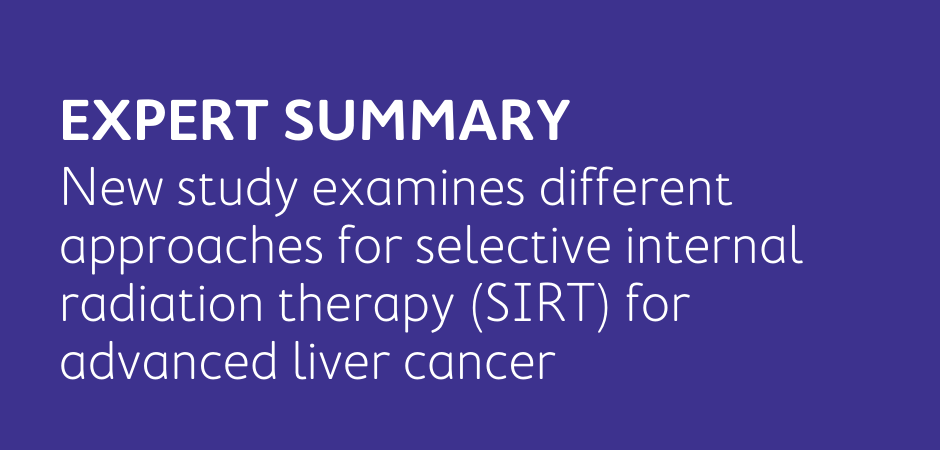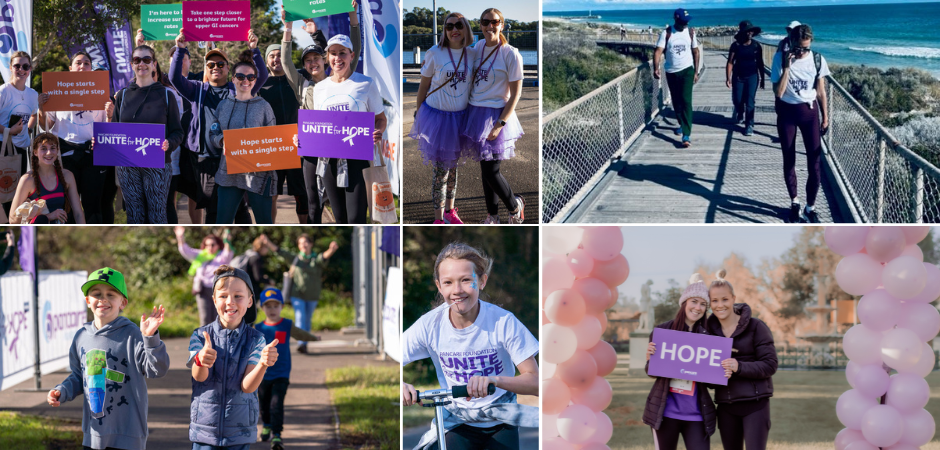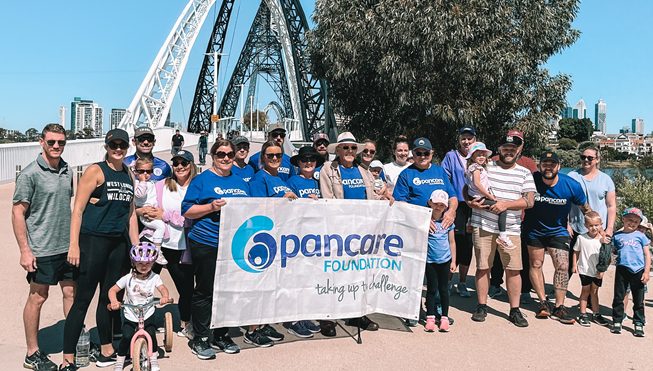
Key messages from Garin et al. Lancet Gastroenterol Hepatol 2021; 6: 17-29
- This recent phase 2 trial examined the effects of personalised dositometry (targeted to individual lesion) versus standard dositometry (to the perfused lobe) of selective internal radiation therapy (SIRT) for treatment of unresectable locally-advanced hepatocellular carcinoma.
- The rate of complete or partial response three months post-SIRT was significantly higher in those who underwent personalised dositometry (71%) versus standard dositometry (36%).
- SIRT with personalised dositomitry resulted in significant improvements in overall survival at 12, 18 and 24 months compared with standard dositometry (median 26.6 vs 10.7 months, respectively).
- Importantly, the study showed that significantly more patients who underwent SIRT with personalised than with standard dositometry became suitable for surgical treatment (36% vs 4%, respectively).
Discussion points from expert reviewer, Associate Professor Paul Gow
Selective Internal Radiation Therapy (SIRT) has now been available in Australia for more than a decade. Despite this, SIRT has not been accepted into standard practice guidelines for patients with hepatoma.
Although the recent Lancet article adds nicely to the growing body of evidence that SIRT has some effectiveness in hepatoma, what we still do not know is exactly when it should be used.
For patients with hepatoma there are many other treatment options, many with better evidence supporting their effectiveness. The other therapies that SIRT is competing with include microwave ablation, TACE therapy, chemotherapy, surgery and even liver transplantation. Further studies are needed where SIRT is compared with these accepted therapies to show whether it is equivalent, or even superior, to them.
About Associate Professor Paul Gow, Pancare Medical Advisor

Associate Professor Paul Gow completed his basic training in Gastroenterology in Melbourne before undertaking a doctorate of medicine in liver physiology through Melbourne University. Subsequently, he spent two years undertaking Hepatology fellowships in England. The first was at The John Radcliffe Hospital in Oxford, and the second at the Queen Elizabeth Hospital in Birmingham. Following this he returned to the Austin Hospital in Melbourne and was appointed as full–time liver transplant physician at the Victorian Liver Transplant Unit. He is also A/Professor of Medicine, University of Melbourne.
Reference
Kunzmann V, Siveke JT, Algül H, Goekkurt E, Siegler G, Martens U, Waldschmidt D, Pelzer U, Fuchs M, Kullmann F, Boeck S, Ettrich TJ, Held S, Keller R, Klein I, Germer C-T, Stein H, Friess H, Bahra M, Jakobs R, Hartlapp I, Heinemann V, on behalf of the German Pancreatic Cancer Working Group (AIO-PAK) and NEOLAP investigators. Nab-paclitaxel plus gemcitabine versus nab-paclitaxel plus gemcitabine followed by FOLFIRINOX induction chemotherapy in locally advanced pancreatic cancer (NEOLAP-AIO-PAK-0113): a multicentre, randomised, phase 2 trial. Lancet Gastroenterol Hepatol 2021; 6: 128–38.
Read more . . .





